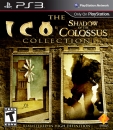Check this out its a wonderful read.
| "There are three types of lies: lies, damn lies, and statistics." - Samuel Clemens Have you seen the news? We're doomed! Doomed, I say! Clearly, we've lost the fight - PC gaming is going down. The sky, it is a-falling. Or something like that. Many of you reading this are shaking your heads. What, you don't believe me? You mean our games aren't truly disappearing in a puff of smoke? But, but...I read it on the label! The headline said it! And the study said... "Nine tenths of all studies performed are severely lacking in rational grounding, planning or design." Whoops! Wrong study. That one is totally made up, anyhow. Ignore that. What I meant to give you was this one, right here: "PC Games account for only 14 percent of total game sales." There we go. That's some pretty heavy stuff. Only 14 percent - that means 86 percent of games sales are consoles! Clearly, we are going down, ladies and gentlemen. Like the Titanic. Or a ton of bricks. Or a Xenon-filled balloon. Needless to say after looking at some of the responses in our own forum thread (amongst others who published this 'news'), you're still not buying it. And by the look of it, most of you didn't miss a trick when you looked at how the study was conducted. There's one very obvious flaw, but before we get to that I'd like to touch on some of the less obvious implications. First of all: what are we counting as PC games? It's a pretty broad topic, don't you think? What about Internet-based Flash games? Things like Bejeweled, Sudoku and countless other little brain-teasing, time-wasting gifts of productivity loss courtesy of Popcap, Pogo, et al. What, you don't think they're paid for? Advertisers salivate over those things like a Pavlovian dog! This type of game has massive user bases and tremendous amounts of play-time. They show up in bunches of workplaces, or as time-wasters for many non-savvy computer users at home. And for the most part, you'll only find them on the PC. Games like this rely on the flexibility and availability - the ubiquitous computer and Internet means nearly permanent availability. Many people will argue that these don't constitute "video games" proper - but I strongly disagree. After all, one of the top sales for the Nintendo DS is the Brain Age series. And another great release, Puzzle Quest, is Bejeweled on steroids with a plot. So why are these things ignored when they're on PC, but counted on consoles? And while we're on the "console" point, isn't it about time we separate handheld from home-based? After all, I can't exactly tote either my PS3 or my PC around. Therefore, buying decisions for my handy DS aren't really going to be influenced by what I have on the shelf for the big systems. Adding these in doesn't even make sense - they're not direct competition at all. So, that drops our list of consoles down by two, one of which just happening to be the biggest seller in games and units - the Nintendo DS. Suddenly, PC sales may look a little rosier. But if not, you also have to keep in mind that there are still five different entries in the "console" market - the Xbox, Xbox 360, PS2, PS3, and Wii - each entirely different from the next in terms of purchases. Suffice it to say, there are a lot of missed factors in this "study" (we'll continue calling it that for lack of a better name that isn't insulting). But one aspect completely stood out to pretty much everyone - it didn't even look at digital distribution. Allow me to repeat this in a more meaningful way: A study that examines PC video game sales does not include the Internet - which has already been chosen as the method of choice for nearly all PC-related content delivery from music to movies to software. And games are starting to catch up, too. How relevant is digital distribution to PCs? Well, let's think about this. When was the last time that you brought home a disc of updates for your operating system? Maybe browsed the Internet via CD copies of the sites? Perhaps you've recently sent email by copying the text to a floppy and mailing it? No? Why is that? Oh, it's probably because the Internet has been so thoroughly integrated into the PC that it is impossible to ignore its impact any further. In fact, it's plain old dumb. We buy everything through the Internet these days - some people even buy groceries via the web.
But anyhow, back to games. How many of you readers bought something off of Valve's Steam network, or Direct2Drive? My guess (from previous threads on our forums) is quite a few of you. Despite the love of a cardboard box and manual, more and more of you are growing to love the change from buying things being an epic journey to a background process. The problem lies in their business model - they're each a small part of an otherwise large organisation. The income does not ever need to be disclosed separately, as if it were its own business. And the companies would rather keep it tight to the vest - releasing gross sales would then require releasing net profits on those specific sales, and not every company wants you to know how much dough they're raking in. It's almost as if the industry secretly wants the PC to fall - and it's not that hard to understand why. The beat of ever-marching technology improvements means PC games require more work and go obsolete faster, meaning more money on engine development and less on sheer production. Nobody really buys a year-old PC game; whereas, since consoles don't change technologically, an older game can look as new and crisp as a fresh release - but with the added benefit of an established gamer base. Unreal Engine 3 will probably live as long as the Xbox 360 - it's really the height of what the console is capable of. So all things forward can be developed on that engine, and they're good to go for another three years or so. Trust me, Microsoft isn't in a rush to release the Xbox 720 or whatever it’ll be called. Nobody aside from Nintendo is interested in making a new console until they have to- they cost too much and dilute your user base. On the flip side, the PC has already surpassed Unreal 3 - one look at Crysis makes it look like, well, last year's engine. Look, the truth is, PC gaming does have its share of problems. The continually moving technology introduces tremendous market confusion and ever-increasing requirements. Piracy is rampant, albeit probably not to the advertised detriment of the industry. And a divided user base between different operating systems and hardware specs means some gamers demand bleeding edge while others couldn't cut through cottage cheese. But none of these things have been a death knell. They've always existed - and for nearly as long as there have been PCs, there have been consoles. None of this has really changed anything. The continual evolution and multipurpose nature of the PC makes it always at the forefront, even if it's never at the top of the sales charts. In fact, only one thing has changed - the industry itself. What used to be a myriad of independent developers, each working to create the next best mousetrap for mere survival and to eke out a decent living, has turned into a wasteland made up of a few giant conglomerates stomping on the users below in a struggle for who will dominate the whole market. They snap up the little guys, put them into the machine, and spit out the post-processed Call of Duty 76 and Halo 19. Games get ported across eight (yes, eight!) different platforms in various shells, often cross-linked with other parts of the "entertainment industry." Shots will be fired, giants will fall and be assimilated to create a bigger, unified giant. And when the final bogus study is released by the new Mega-IGN-Eurogamer-whatever conglomerate, we can see the CEO of the last media outlet standing tall in his suit, telling us to "Welcome our new benefactors. PC Gaming is dead." But it's not PCs that will have died, and it's not consoles that will have won. Consoles are just the tool most convenient for the purpose - locked down systems that can prevent outside innovation without significant initial investment. It's gaming that will have died, and a single corporate monolith that won. The same rehashed game sold eight different ways - that will be consumer "choice." At one point in our history, the sky did fall - bedroom developers making too many crappy, poorly thought out games brought the industry to its knees in the early 80s. This time, the opposite is true - too few developers making too few new games. However, there are a lot of poorly thought out releases...at least one thing is consistent. And all the while, the industry can chuckle - releasing statistics to justify the move toward bigger corporate ideals, blaming piracy and technology while they buy up the next big thing before it can get released and seed another giant. There is but one goal - get bigger. Get bigger, big enough to break the sky. Congratulations, monoliths. The most recent sales statistics say "you're winning." |
This editorial is a great read and definitely points out flaws about whats going on in the overall industry and shows why PC gaming is no where near dead.
Source: http://www.bit-tech.net/columns/2008/02/02/the_sky_is_falling/1




























































